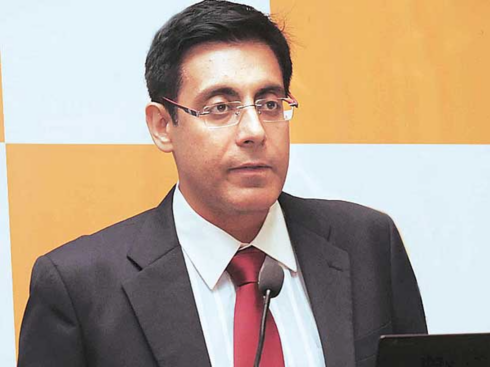
SUMMARY
There are favourable tailwinds such as the government efforts in creating Ayushmaan Bharat Yojana
Pharma and healthcare organizations need to constantly revisit their company culture and its agility to respond to policy changes
The venture capital and private equity industry must demonstrate more audacity by investing in cutting edge research
While attending the recently held BioAsia 2019 in Hyderabad, I felt gung-ho about the immense learning and sharing opportunities in a sector that is seeing both headwinds and tailwinds. Listening to and conversing with the industry leaders, investors and startups across the healthcare & pharma spectrum has not only brought fresh perspectives but also lent more credence to the several closely-held beliefs and opinions about the state of the healthcare sector in India.
Government & Academic Research Leading The Way
Firstly, there is a general sense of a strong push back by the industry about the lack of a stable Indian government policy especially with price controls. This has been a major cause of negative disruption to growth and has caused nearly 20,000 crores in top- and bottom-line losses in the past year. There is a clear consensus across the Indian pharma leadership that affordable healthcare cannot be achieved solely with price controls.
In particular, the Active Pharmaceutical Ingredient (API) has caused significant heartburn to the industry. For the uninitiated, APIs and intermediates are key raw materials to manufacture pharmaceutical formulations such as tablets, capsules, syrups, etc. The cost of API imports from China have ballooned by 3x-4x recently and pharma businesses are revisiting new investment decisions due to dilution of business viability of newly-approved projects.
Measures are being taken to incentivize indigenous production and reduce import dependency; it’ll also help reduce the enormous skew in the Indo-China trade deficit. For a $40 billion pharma industry in India, these external shocks have added fillip to promote business & technology innovation across the ecosystem. The industry is ripe for disruption and it must come from all quarters of the ecosystem.
There are favourable tailwinds such as the government efforts in creating Ayushmaan Bharat Yojana. In India, where ~65% of its population pays for healthcare themselves, India’s ranking on the Healthcare Quality Index (HQI) is abysmally low among 195 nations. Unlike the rapid improvements seen in the Ease of Doing Business Ranking during the past few years, the HQI for India has only moved at a snail’s pace from 153 in 1990 to 145 in 2018. Ayushmaan 1.0 is one of the first pillars to create a strong ecosystem towards modern healthcare.
Never can there be a better time to define a potent national innovation policy that provides better direction to the innovation efforts while providing a conducive business environment and stable trade policies. For quality research outcomes to emerge, the enabling environment needs to allow for uninterrupted creativity and scientific thought. In addition, the several federal and state research agencies can find synergies and unify innovation efforts as against working in disjointed silos chasing similar research & innovation goals.
University research is way ahead in US and China where undergraduate, impressionable students are exposed to exciting world of possibilities in the health and life sciences sector early on. It is important that India continues to underline academic research, incentivizes researchers in the biologics segment and enables research through grants. Institutes such as Biotechnology Industry Research Assistance Council (BIRAC), under the aegis of Department of Biotechnology (DBT), have been doing excellent work in promoting research in deep sciences.
In addition to government funding, private foundations must step up and encourage research. Taking cue from the relatively successful industry-academia partnerships in the United States of America & European Union, Indian academic institutes should find ways to participate with industry to solve real-life problems.
The Role Of Industry, Venture Capital & Startups
Pharma and healthcare organizations need to constantly revisit their company culture and its agility to respond to policy changes. Enabling culture to embrace such change is technology and innovation. Industry, while associating themselves with academia, needs to invest into basic research and work alongside enterprising startups in order to yield strategic dividends.
In the short and medium term, there’s still potential to exploit from generics and biosimilars. There are deflationary price pressures on generics (~10% YoY) and, as a result, industry leaders predict leading companies to be vacating this segment soon. Indian manufacturers, as incumbents with significant cost advantages, will stand to gain.
The venture capital and private equity industry must demonstrate more audacity by investing in cutting edge research. When compared to exit horizons in other industries, the health and life sciences sector has a longer gestation period but has higher upsides. Once few successful exits are seen, it’ll open the floodgates to institutional capital.
Industry and its corporate venture capital (CVC) units must also be being open and willing to engage with the startup ecosystem in addition to organic growth. Not just access to high risk capital, health & life sciences startups need business support and mentoring that will help them achieve the desired scale.
Lastly, many startups in India are creating solutions that are a “me-too” of solutions applied in different contexts. Such solutions might have tactical outcomes, but clearly many more entrepreneurs must place big bets in the many structural gaps that exist in the industry. Constantly scouting research from University and research agencies and identifying the market-scalable solutions will be the smart entrepreneur’s approach.
In summary, I find the healthcare industry to be uniquely poised at an inflection point; it is important that positive disruptions are enabled by the multiple stakeholders across the ecosystem.


























